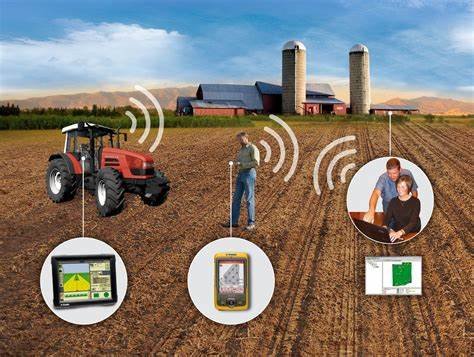Precision Agriculture : Precision agriculture is an innovative farming technique that uses technology to optimize crop production and reduce waste. This technique involves the use of sensors, GPS, and other technologies to gather data about crops, soil, and weather conditions. This data is then analyzed to make more informed decisions about planting, fertilizing, and harvesting crops. While precision agriculture has the potential to provide significant benefits, it also raises a number of risks and challenges. In this article, we will explore the benefits and risks of precision agriculture.
Benefits of Precision Agriculture
Increased Efficiency
One of the primary benefits of precision agriculture is increased efficiency. By using technology to gather data about crops, soil, and weather conditions, farmers can make more informed decisions about planting, fertilizing, and harvesting crops. This can help to reduce waste and increase crop yields, which can lead to higher profits for farmers.
Reduced Environmental Impact
Another benefit of precision agriculture is reduced environmental impact. By using technology to optimize crop production, farmers can reduce the amount of fertilizer, water, and pesticides that they use. This can help to reduce the amount of pollution that is released into the environment, which can have a positive impact on the health of local ecosystems.
Improved Crop Quality
Precision agriculture can also lead to improved crop quality. By using technology to monitor crops and soil conditions, farmers can identify potential issues early on and take steps to address them. This can help to reduce the risk of crop damage and improve the overall quality of the crops that are produced.
Risks of Precision Agriculture
Costs
One of the primary risks of precision agriculture is cost. The technology that is required to implement precision agriculture can be expensive, and many farmers may not be able to afford it. Additionally, the cost of maintaining and repairing this technology can be high, which can add to the overall cost of farming.
Data Privacy
Another risk of precision agriculture is data privacy. The data that is collected by precision agriculture technologies can be highly sensitive, and there is a risk that this data could be misused or stolen. This could lead to a loss of privacy for farmers, as well as a loss of competitive advantage.
Technical Complexity
Precision agriculture is also technically complex, which can make it difficult for some farmers to implement. Farmers who are not familiar with the technology that is required for precision agriculture may struggle to use it effectively, which could limit its potential benefits.
Conclusion
In conclusion, precision agriculture is a promising farming technique that has the potential to provide significant benefits. However, it also raises a number of risks and challenges, including costs, data privacy, and technical complexity.
